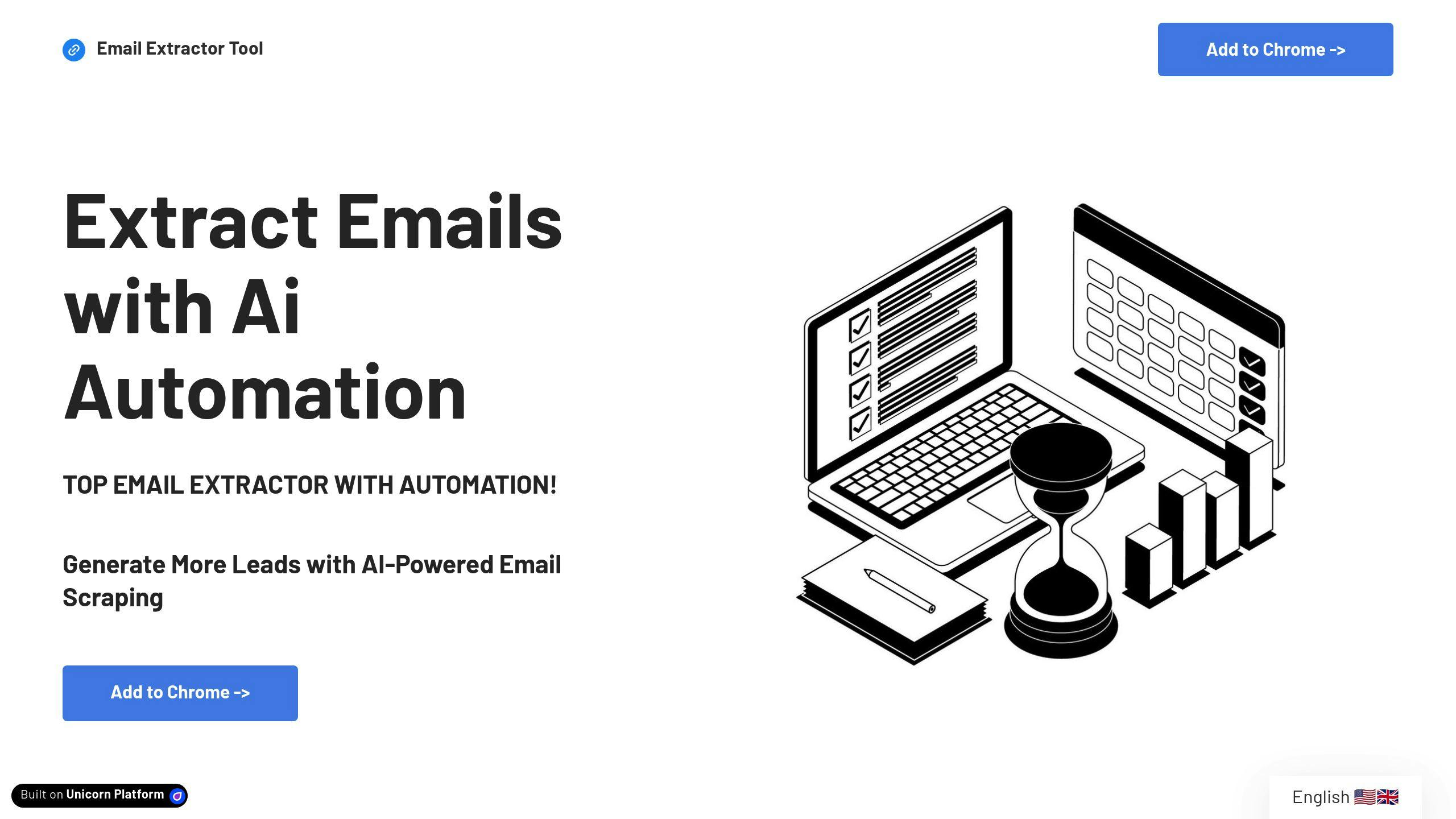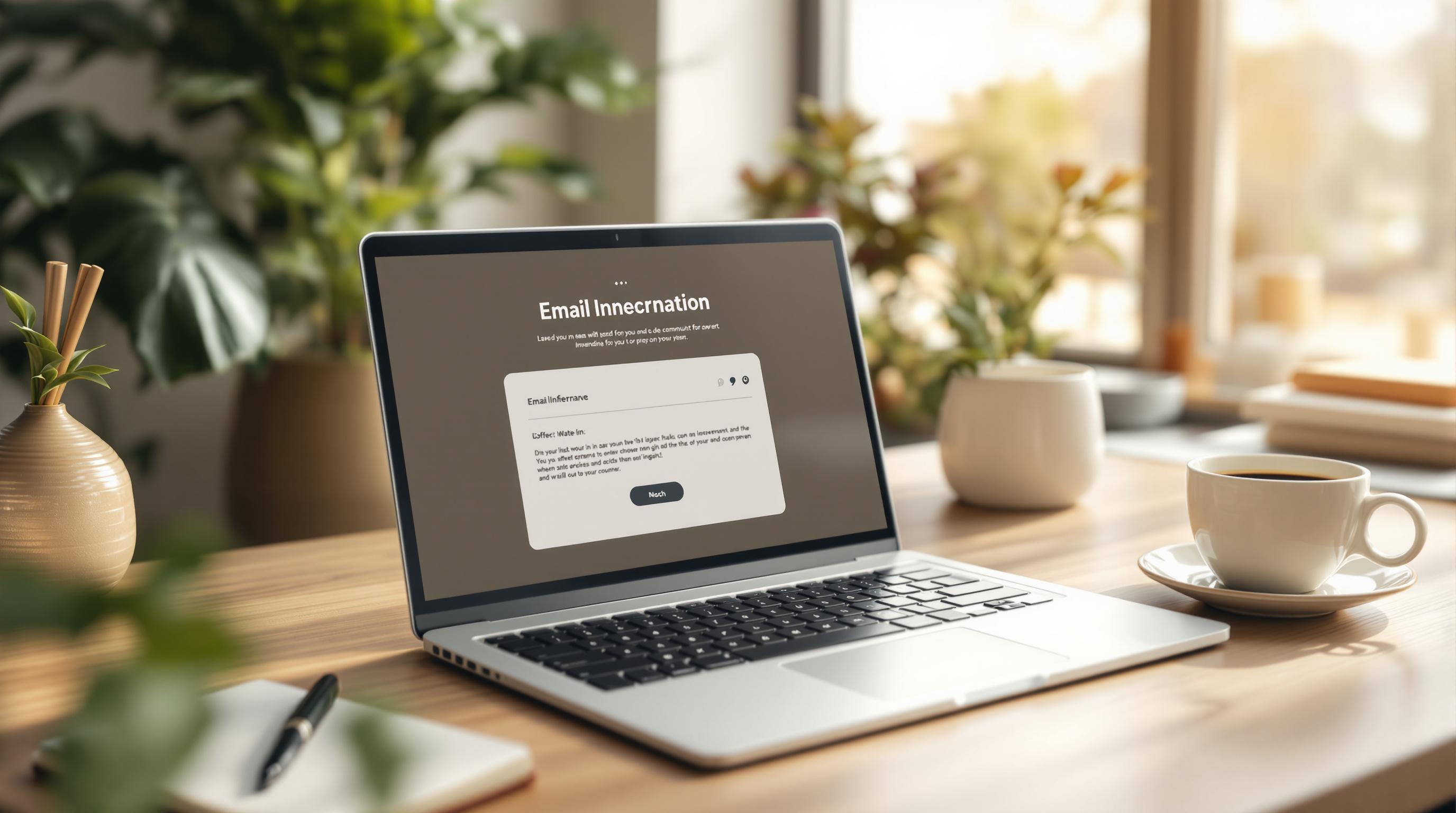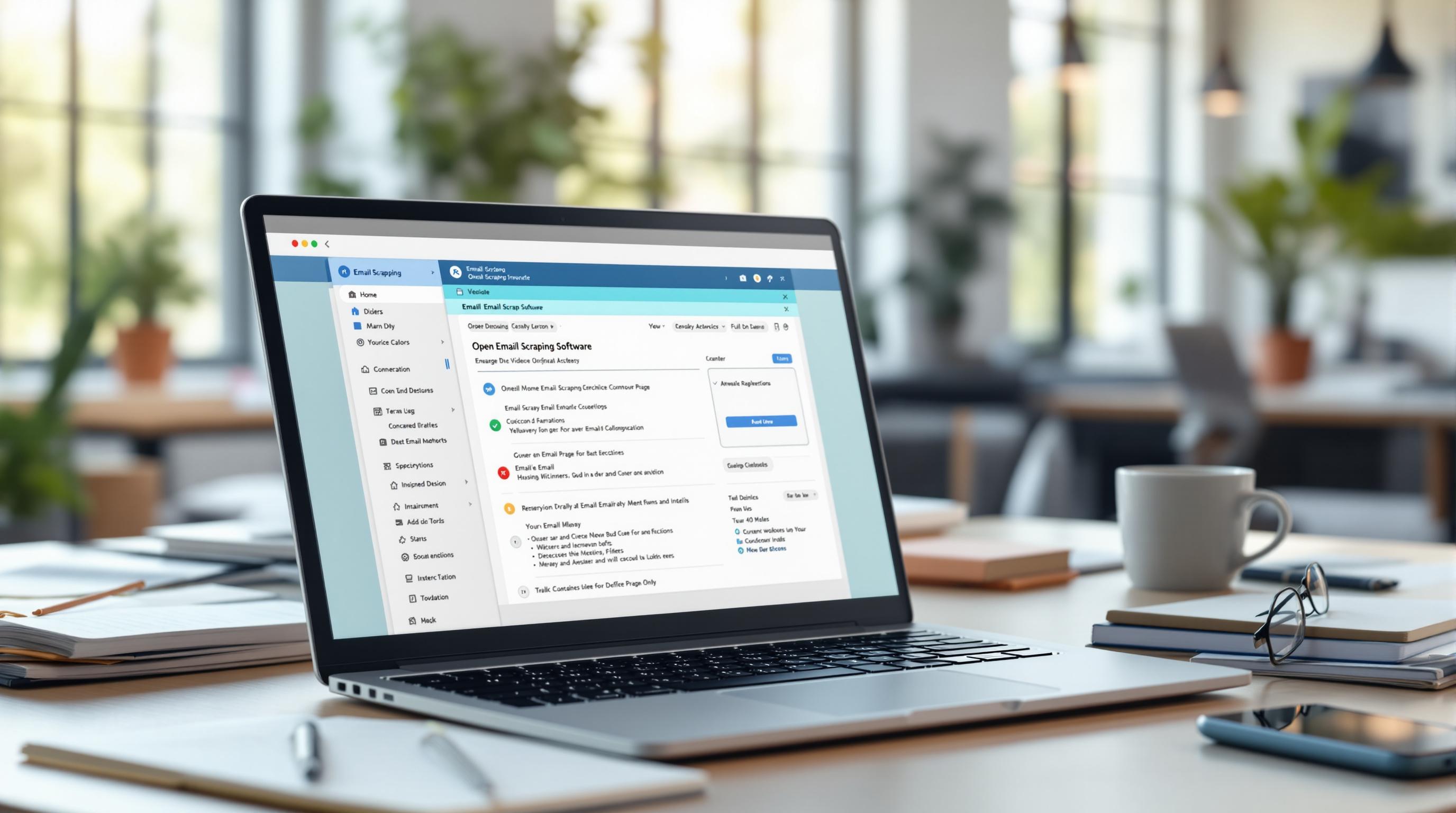Email scraping can help businesses grow, but it must comply with the California Consumer Privacy Act (CCPA) to avoid fines of up to $7,500 per violation. Here's what you need to know:
- Does CCPA apply to you? It applies if your business earns over $25M annually, handles data for 50K+ people/devices, or earns 50%+ revenue from selling personal info.
- Transparency is key: Update your privacy policy, disclose how emails are collected and used, and provide a "Do Not Sell My Personal Information" link.
- Respond quickly: Address user data requests within 45 days.
- Protect data: Use encryption, secure storage, and regular audits.
- Automation tools: Tools like Email Extractor Tool can assist with compliance by offering privacy-focused features.
Staying compliant safeguards your business from penalties and reputational harm while respecting user privacy.
Checklist for CCPA Compliance in Email Scraping
Here’s a guide to ensure your email scraping practices align with CCPA regulations:
1. Determine If CCPA Applies to You
Review the criteria outlined earlier to confirm whether your business falls under CCPA regulations [1][2].
2. Update Your Privacy Policy
Your privacy policy should clearly outline:
- How email addresses are collected and used
- Whether and how data is shared
- Consumer rights under CCPA
- Steps for consumers to exercise these rights [2][3]
3. Be Transparent About Email Collection
When collecting email addresses, explain why you’re collecting them, how they’ll be used, and who may have access to the data [2][3].
4. Include an Opt-Out Option
Add a visible "Do Not Sell My Personal Information" link on your website. Keep records of opt-out requests to stay compliant [1][3].
5. Respond to User Requests Promptly
"Businesses must respond to user requests within 45 days. This deadline can be extended by an additional 45 days if necessary, but the consumer must be notified of the extension" [1][2].
Set up a reliable system to verify user identities and document all interactions to meet this requirement.
6. Protect Email Data
Use strong security measures like encryption, secure storage, and regular audits to safeguard email data [1][2].
If you rely on automation tools for email scraping, ensure they comply with CCPA rules. Non-compliance can lead to hefty penalties, as detailed in earlier sections.
Legal and Ethical Issues in Email Scraping
Email scraping can help businesses grow, but it comes with legal and ethical responsibilities. Beyond complying with laws like the CCPA, companies must address privacy concerns and avoid potential legal troubles.
Respecting Privacy in Email Scraping
Research shows that 71% of consumers trust companies more when they are transparent about data practices [2]. To earn and keep that trust, businesses should:
- Use clear consent processes.
- Be upfront about how data will be used and honor user preferences.
- Ensure data is handled securely.
"Businesses should obtain explicit consent and align data practices with user expectations" [2][3].
If you're using automation tools for email scraping, set them up with privacy-focused settings. Tools like Email Extractor Tool can help by offering features that prioritize privacy and secure data management.
Legal Risks of Ignoring CCPA
Failing to comply with the CCPA can lead to serious consequences. Fines range from $2,500 to $7,500 per violation, and data breaches can add even more financial strain [1][2].
One example is Sephora, which was fined $1.2 million for not disclosing its data-selling practices and failing to provide opt-out options [1][2].
The risks don't stop at fines. Non-compliance can lead to:
- Damage to your reputation.
- Losing customer trust.
- Class-action lawsuits.
- Investigations by regulators.
To avoid these issues, businesses should keep detailed records of their compliance efforts and regularly update their privacy policies [1][3]. Tools built to support CCPA compliance can make this process easier and more effective.
sbb-itb-8abf799
Using Email Extractor Tool for CCPA-Compliant Email Scraping

Navigating the legal and ethical challenges of email scraping requires tools built specifically for compliance. The Email Extractor Tool offers automation designed to meet CCPA guidelines, making it a reliable choice for lead generation.
Features of Email Extractor Tool
- AI-Powered Detection: Effortlessly scans web pages to locate and extract email addresses.
- Data Export Options: Supports downloads in both CSV and TXT formats for easy data organization.
- Automation Capabilities: Streamlines the process, reducing manual work while adhering to compliance standards.
These features help businesses collect data responsibly while aligning with CCPA regulations.
How to Stay Compliant with Automation Tools
| Compliance Area | Implementation Steps |
|---|---|
| Data Management | Use clear notifications and provide opt-out functionality. |
| Security & Response | Handle data securely and automate timely responses to user requests. |
By following these practices, companies can use tools like the Email Extractor Tool confidently while maintaining compliance.
Plans and Pricing for Email Extractor Tool
| Plan | Monthly Price | Email Limit |
|---|---|---|
| Starter | $8.99 | 5,000 emails |
| Growth | $37.99 | 50,000 emails |
| Enterprise | $139.99 | 1,000,000 emails |
All plans come with features like export controls and privacy-focused automation. These options are designed to scale with your needs, ensuring compliance and effective lead generation.
"Businesses must ensure they have clear privacy policies in place and inform users about data collection when using automation tools for email scraping", emphasize privacy experts discussing CCPA compliance.
Conclusion and Final Thoughts
Steps to Ensure Compliance
To meet CCPA requirements, businesses must prioritize privacy while still driving lead generation. This involves ensuring strong data security measures like encryption and access controls, responding to consumer requests within 45 days, and keeping privacy policies up-to-date with clear records of changes. Conducting regular audits can help spot and address any compliance issues early.
The checklist provided earlier serves as a solid starting point for building an effective compliance strategy that balances privacy needs with business goals.
Merging Privacy with Lead Generation
Using tools like Email Extractor Tool can help generate leads while staying compliant. To stay on track, focus on:
- Clear and transparent communication about how data is collected
- Responding to consumer requests promptly
- Regularly revising and updating privacy policies
- Maintaining a secure and reliable data infrastructure
FAQs
Does CCPA require opt-in for marketing emails?
No, CCPA does not require opt-in consent. However, it does mandate clear opt-out options and timely responses to consumer requests. Businesses must provide a "Do Not Sell My Personal Information" link on their website and address opt-out requests within 45 days [1][2].
How does CCPA define personal information for email scraping?
Under CCPA, personal information includes data that identifies or is linked to an individual or household [1][2]. For email scraping, this can include:
| Data Type | Examples |
|---|---|
| Direct Identifiers | Email addresses, Names |
| Related Information | IP addresses, Device IDs |
What are the penalties for non-compliance?
Non-compliance can lead to fines of up to $7,500 per violation. Beyond financial penalties, businesses also face risks like legal challenges and damage to their reputation [1][2].
How quickly must businesses respond to data requests?
Businesses are required to respond to data requests within 45 days, as outlined in the compliance checklist [1][2].
Can automation tools help with CCPA compliance?
Yes, automation tools can simplify compliance tasks while supporting lead generation. Tools like Email Extractor Tool can assist by offering:
- Built-in opt-out features
- Secure data handling processes
- Automated systems for responding to consumer requests
- Data management solutions that align with CCPA rules
What verification is required for consumer requests?
The level of verification depends on the type of request [1][2]. Identity verification is needed for requests involving information access or data deletion, but it's not required for opt-out requests.
How should businesses protect scraped email data?
To ensure compliance and data security, businesses should use encryption, enforce strict access controls, and conduct regular audits [1][2].



